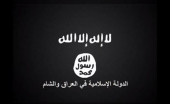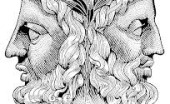Molly Minturn - My family is heartbroken to share that my father died in surgery on Monday, Feb. 10. It…
Wednesday Night #1626
Written by Diana Thebaud Nicholson // May 1, 2013 // Wednesday Nights // Comments Off on Wednesday Night #1626
Whiskey and guns were the hallmark of the past and are ingrained in the American people’s psyche. The Alamo was all about troublemakers;
California was taken over by Fremont’s small gun-toting force
[albeit without firing a shot].
It’s a cultural context.
It’s the violence behind America’s success.
Felicitations, Catherine! Wednesday Night’s (and Our Harbour’s) Catherine Gillbert’s current gruelling pilgrimage along one of the most beautiful, historic and daunting journeys in the world across Northern Spain, on foot, along the Camino de Santiago to the shrine of St. James in Santiago de Compostela, Galicia is the latest of her adventures. Her entertaining and informative blog is a treat to read. Wednesday Nighters wish her Godspeed and look forward to an account of another great adventure on her safe return.
As Expo 67 approaches its fiftieth anniversary in 2017, the Fondation Expo 67 is gearing up to lobby for the establishment of a proper documentation and archive centre, along with restoration of some of the more neglected public spaces on the islands. It is currently publishing a series of Day-by-day personal accounts of events during the six months of Expo.
Award-winning journalist John Lownsbrough will discuss his delightful book The Place To Be – Expo 67 (Penguin History of Canada series) on Thursday at the Atwater Library. Reflecting on that magical summer, it is striking that in contrast to the prevailing violence of the twenty-first century world, it was a period of peace, joy, friendship, creativity, innovation and the flowering of Montreal as an international city. The religious mingled with the secular, the Muslims with the Jews, royalty with the commoners, Anglophones with Francophones. To the delight of large crowds, world leaders, celebrities from the entertainment world, tycoons, politicians … all moved securely through the site. Prime Minister Pearson and his wife enjoyed several private visits; Senator Robert F. and Ethel Kennedy with numerous children rode the Flume in La Ronde without a care. Even the Arab-Israeli Six-day War provoked only strained relations among the participating nations at Expo. The one truly discordant note was sounded by French President de Gaulle, whose declaration of Vive le Qubec Libre earned him sharp rebukes and a dis-invitation to Ottawa.
Ron Meisels shared impressions of his recent visit to Greece and Turkey. He commented on the lack of pollution in Athens, and the surprising amount of commercial activity for which he has established an unusual indicator – the number of taxis in circulation and their rate of occupancy. The roads built for the Olympics are in great shape and traffic moves smoothly; restaurants and cafes near the Agora are full; not too many tourists.
Turkey appears to enjoy a thriving economy (lots of busy taxis), exports of all sorts including cars that are exported to Asian markets, and impressive highway infrastructure. The high point of the trip, however was to the ancient sites of Ephesus and Cappadocia. At the latter, they slept in a cave hotel, visited a 9,000-year old settlement, an ancient seven-storey ‘condominium’ , and also a family living in one of the rock houses where they enjoy all modern conveniences, electricity, etc. The sense of history and ancient cultures is overwhelming.
The economy
This week’s announcement that Quantitative Easing /printing of money by the Fed is to continue is good news for the wealthy, but doesn’t help the rest of the population much. Central banks are buying financial assets – equities (ETFs in large quantities) – which shores up banks and lowers borrowing costs of corporations and home buyers who have good credit. But it is also giving rise to unintended consequences: new asset bubbles.
The Harper government has imposed controls on CBC and several other crown corporations, namely by taking an active role in negotiations with the unions. It was pointed out that the problem with collective bargaining in the public sector is that the public will not accept the withdrawal of services, thus settlements tend to be rapid and generally favorable to the union. Thus, the president of the Treasury Board is right in wanting to oversee the demands on the public purse, although it is difficult to see how effective the presence of a Treasury Board representative will be, other than as a reminder to all that compensation and pensions must be manageable withing the ever-shrinking confines of the budgets allocated to the crown corporations. A concern remains for many that the current proposals mask an attempt by this government to intervene in programming at CBC. Meantime, at Canada Post, which faces losses of as much as $1 billion, the real problem is the replacement of more and more workers – and services – by technology advances.
Guns and the US
Opponents of any form of gun regulation (who include many more than NRA members and libertarians) cite the second amendment guarantee of the constitutional right of Americans to bear arms (although the framers of that document never envisaged the assault weapons of today). However there is an irrationality among defenders of the right to own/carry any and all types of weapons that is truly frightening and takes no account of the monetary, intellectual, medical, emotional, judicial and incarceration costs that flow from the lack of any form of control.
it be denied that long guns are justifiable in remote areas as protection against wildlife. but that should be weighed against the monitory, but more especially the cost in terms of unnecessarily lost human lives. There is some thought that the possibly justifiable expressed need for guns, especially long guns in rural areas may be a reflection of a possible overrepresentation of rural, versus urban electoral districts in the legislatures, provincial and/or federal when compared the total population distribution .
On the financial scene, the market is said to be heading for a correction, with some profit-taking possible. It is anticipated that the Market may pause during May and June for an as yet unpredictable period of time; there may be some profit-taking.
As a member of a retirement benefit plan, predicting the health of the plan has become almost as hazardous, if it is a defined benefit plan, as is the prediction of one`s lifespan. For this reason, with the notable exception of government plans, most remaining plans have become defined contribution, a game in which the sponsor rolls the dice to determine the ultimate winnings of the beneficiary. It might very well be called the twenty-first century game of life.
The Prologue
Having met the deadline for filing our taxes, we rail against the ugly truth revealed/confirmed by the Fraser Institute Report Taxes consume larger share of family budgets than basic necessities of life As suspected, Canadian families are spending more money on taxes than on food, clothing, and shelter combined. The Canadian Consumer Tax Index calculates that in 2012, 42.7 per cent of an average family’s income went towards taxes (including all types of taxes imposed by federal, provincial, and local governments) while 36.9 per cent was spent on food, clothing, and shelter combined.
And what do the governments do with all that money we give them? Sometimes it’s hard to ascertain at the federal level, according to Andrew Coyne’s analysis of evolving budget secrecy What Jim Flaherty didn’t want you to know … the budget document itself has become a kind of coded palimpsest, written with the intent of disclosing as little as possible. Everything is in the ellipses. Whole passages are included for no purpose but to distract attention from other passages; others, seemingly innocuous, are later discovered to contain the government’s entire fall agenda. Everything else is just left out.
Meanwhile, according to Auditor General Michael Ferguson’s spring report issued today Canada can’t account for $3.1B in anti-terror funding — And that is just one item in the 11-chapter report whose common theme appears to be the lack of information on spending and on results achieved for money spent.
If that hasn’t provoked severe depression, you may want to consider the questions on the Quantitative Easing policy of the world’s central bankers, posed by Neil Macdonald in last night’s riveting piece on The National : The Monarchs of Money – our friend Donald Johnston sounded relatively positive, others not so much.
While pondering the effectiveness of QE, check out this item from Bloomberg, forwarded by Guy Stanley: Central Banks Load Up on Equities — Managers of banks’ assets are looking for alternatives to holding government bonds after efforts to stimulate growth from the Federal Reserve, the Bank of Japan and the Bank of England helped send yields near to record lows [our emphasis]. Guy also forwarded a link to the 2010 speech by Adam Posen- a former official at the Bank of England on the principle of bank independence, When Central Banks Buy Bonds: Independence and the Power to Say No, with the comment that Taken together they perhaps suggest a new chapter is being opened in what is after all quite an old book.
[Update] Reuters reports, “The Federal Reserve’s debate over U.S. monetary policy could begin to shift away from the prospect of reducing stimulus toward a discussion about doing more, given the signs of economic weakness and slowing inflation.”
One more item on central banks – What is taking so long to name Mark Carney’s replacement? For weeks, the bets have been on Senior Deputy Governor Tiff Macklem, however, according to Bloomberg (via The Gazette), the second strong contender is our old friend and Wednesday Nighter, Stephen Poloz – would he be the first BCA alumnus to head the Bank of Canada?
On a related – as is everything economic – topic, we draw your attention to two encouraging articles. The first in Foreign Policy: Think Again: European Decline — Sure, it may seem as if Europe is down and out. But things are far, far better than they look. The second, by Nicholas Vardy: Don’t Ignore Europe’s #1 Austerity Success Story — The critiques of economist Paul Krugman and French socialists notwithstanding, Ireland is Europe’s single-biggest success story. In fact, I would argue that Ireland — thanks in large part to its relentless commitment to austerity — now has all but “graduated” from the ranks of Europe’s “PIIGS” countries — Portugal, Italy, Ireland, Greece and Spain.
We look forward to comments from Kimon,Tony Deutsch and other illuminati.
Congratulations to Kyle Matthews and CIC Montreal for a great event Monday evening with Turkey’s ambassador to Canada, Tuncay Babalı speaking on his country’s evolving role in Europe and the world. Ron Meisels has just returned from that country where he learned that tulips originated (and we found so did the fathers and mothers of all grapes). Confirming the truth of the recent Postmedia story Turkey feels like it’s on a roll while Europe founders , he points out that Istanbul, Ismir, Anatolia are booming, 25M visitors planned for this year, gas is at US$2.00-2.50/ litre, yet there is no end to traffic, and the thing I heard more often is “Boy, we are glad we did not join the EU!” He adds: they export things we have never heard of (aside from tulips)!
Catherine Gillbert‘s granddaughter writes “to let you know that my grandma is now halfway along the Camino. She has completed 400 km and is having a wonderful time. For more information please visit the Our Harbour blog at www.ourharbour.org“. Catherine’s Camino blog is a joy to read, full of wonderful descriptions and quirky details.
To briefly take our minds off the Charbonneau Commission, Bill 14 and the acrimonious debates it has generated despite the efforts of our friends Beryl Wajsman and Julius Grey (Let’s talk — calmly, CRITIQ says), we suggest celebrating Expo 67.
This week marks the 46th anniversary of the opening days of Expo 67. We had hoped to focus on those happy times and the question of Montreal’s future – can it ever return to even a shadow of its glorious self? but it seems that with all the economic news, we will have to postpone that discussion. Nonetheless, there is a treat in store on Thursday, when our friend award-winning journalist John Lownsbrough, will speak at the Atwater Library at 12:30 on his book, The Best Place To Be, part of the Penguin History of Canada series (here’s one charming review)



